Wednesday’s general election yielded some notable results, from slight hints of regional favoritism toward parties to victorious independent underdogs who defected from the two major parties.
The following are some of the election winners who garnered nationwide attention in their race for a parliamentary seat.
Observers note that the election for the 20th National Assembly will be remembered for candidates of major parties — Saenuri Party and The Minjoo Party of Korea — winning in constituencies that had traditionally been their rival’s stronghold.
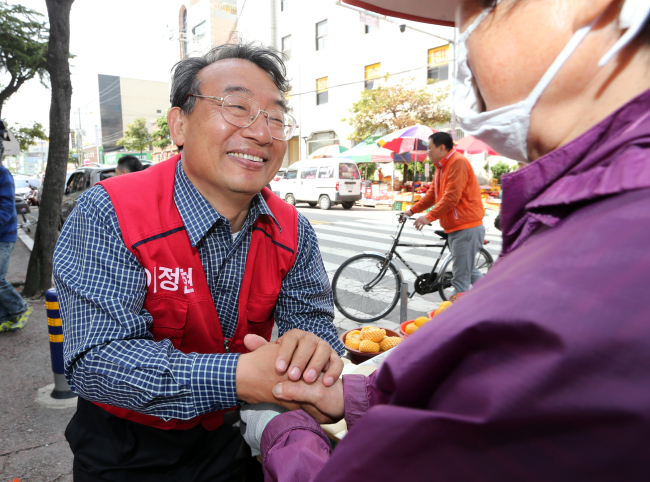 |
| Rep. Lee Jung-hyun |
Saenuri Party’s Lee Jung-hyun retained his seat in Suncheon, located in the longtime liberal base of South Jeolla Province. Lee, a close confidant of Park, had taken the constituency in the 2014 by-elections.
The ruling party’s Chung Woon-chun also won a seat in Jeonju, North Jeolla Province. He became the first ruling party lawmaker from the liberal city in 20 years.
But it was not just the conservatives who took victory in what was considered their rival’s home turf.
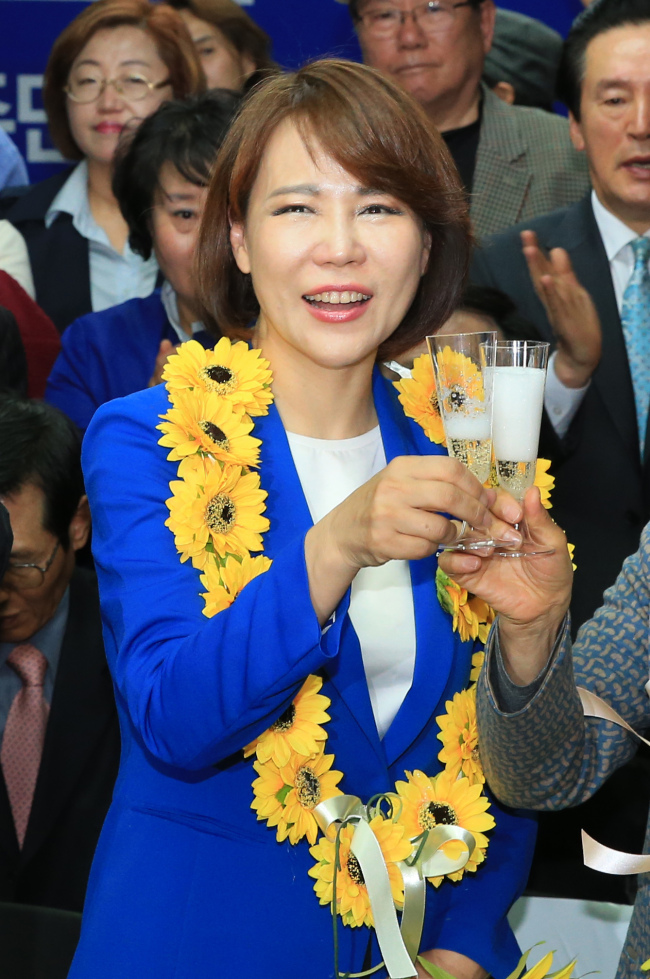 |
| Jeon Hyun-hee |
Decades-old Saenuri Party dominance in the traditionally conservative Gangnam-gu in Seoul was challenged by Minjoo Party candidate Jeon Hyun-hee winning the Gangnam-eul constituency.
Jeon, a dentist-turned-lawyer-turned-politician, became the first opposition lawmaker from the affluent region in 24 years.
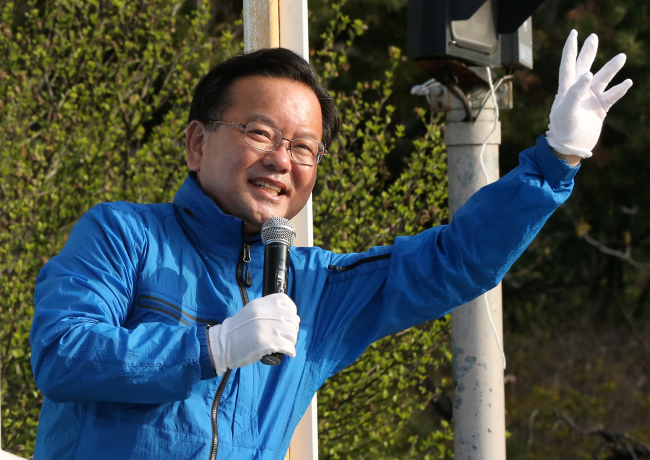 |
| Kim Boo-kyum |
President Park Geun-hye’s own political stronghold of Daegu also fell to the opposition as the Minjoo Party’s Kim Boo-kyum beat out former Gyeonggi Gov. Kim Moon-soo. It was the first time in 31 years an opposition candidate has won in the city.
Kim’s win sparked speculation for his candidacy in next year’s presidential election.
Many of the high-profile independents who defected from the ruling party amid the recent nomination fiasco also emerged victorious.
Rep. Yoo Seong-min, who voiced his intent to return to Saenuri upon reelection, won with over 75 percent of the votes in Daegu.
Yoon Sang-hyun from Incheon was another Saenuri defector who was elected Wednesday. He was excluded from the ruling party’s nomination after an expletive-laden phone call with an acquaintance about party leader Kim Moo-sung was revealed to the public.
Fellow Incheon winner Ahn Sang-soo on Thursday become the first Saenuri Party defector to formally apply to return to his old party. The party’s bigwigs have made it clear that they will not allow the return of defectors, but it also needs at least two more members to retake its position as the majority party.
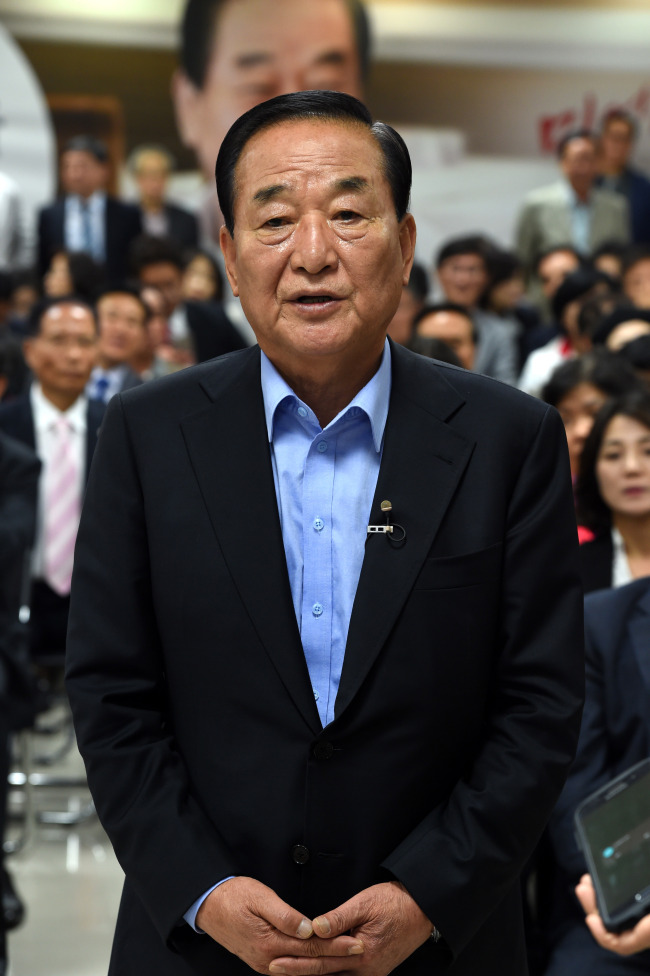 |
| Rep. Suh Chung-won |
All the news was not grim for the ruling party, as its Rep. Suh Chung-won, a close associate to President Park, won his eighth term as a lawmaker. He is the longest serving incumbent lawmaker, and only six politicians — including former President Kim Dae-jung — have served eight or more terms.
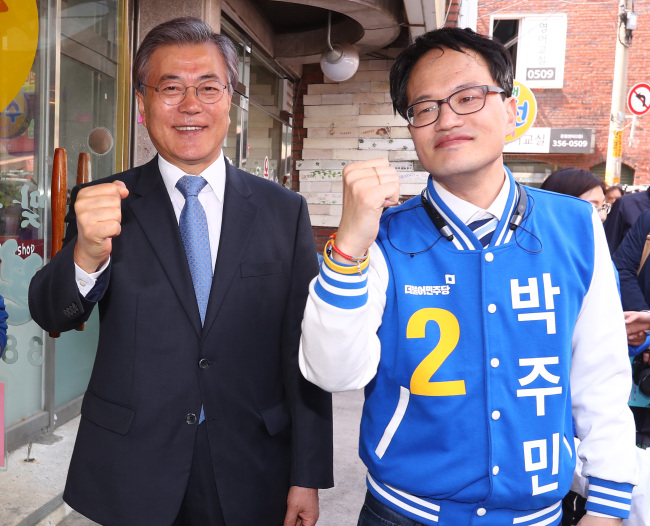 |
| Park Ju-min (right) |
Among opposition figures, first-time lawmaker Park Ju-min of the Minjoo Party is best known for legally representing the bereaved families of victims that perished in the 2014 sinking of the Sewol ferry. Upon being elected from Eunpyeong-gu, Seoul, he vowed to revise the Sewol Special Law for an extended period and get more investigation-related rights for the Sewol special investigative committee.
Chin Young of the Minjoo Party has a rather peculiar resume, as he was a lawmaker for the Saenuri Party merely months before the election, but defected after failing to be nominated. The former health minister had been considered a pro-Park faction figure before he had a run-in with the president in 2013 over the government’s scaled-down basic pension plan, and then resigned as minister.
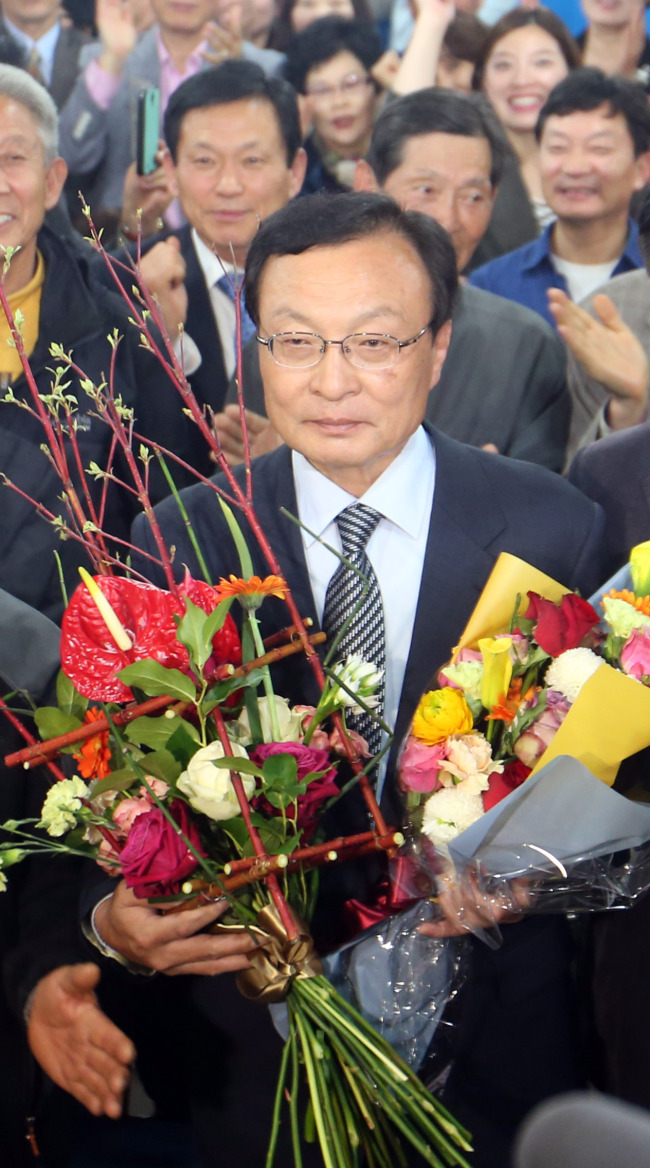 |
| Rep. Lee Hae-chan |
Opposition stalwart Lee Hae-chan — a former prime minister — also prevailed in the election, winning in the Sejong constituency as an independent after the Minjoo Party did not nominate him. Lee on Thursday visited the grave of former President Roh Moo-hyun and expressed his wish to return to the Minjoo Party.
Minjoo Party leader Kim Chong-in’s refusal to nominate Lee was only one of the controversies that pelleted the main opposition’s nomination process. The dispute was fueled further by Kim’s decision to nominate himself at the No. 2 spot on the party’s proportional representation list.
At the height of inner party strife, Kim even offered to resign last month, but reversed his decision after a talk with former party leader Moon Jae-in.
In June, Kim will commence his fifth parliamentary term after leading his party to a surprising win over the Saenuri Party.
By Yoon Min-sik (minsikyoon@heraldcorp.com)

